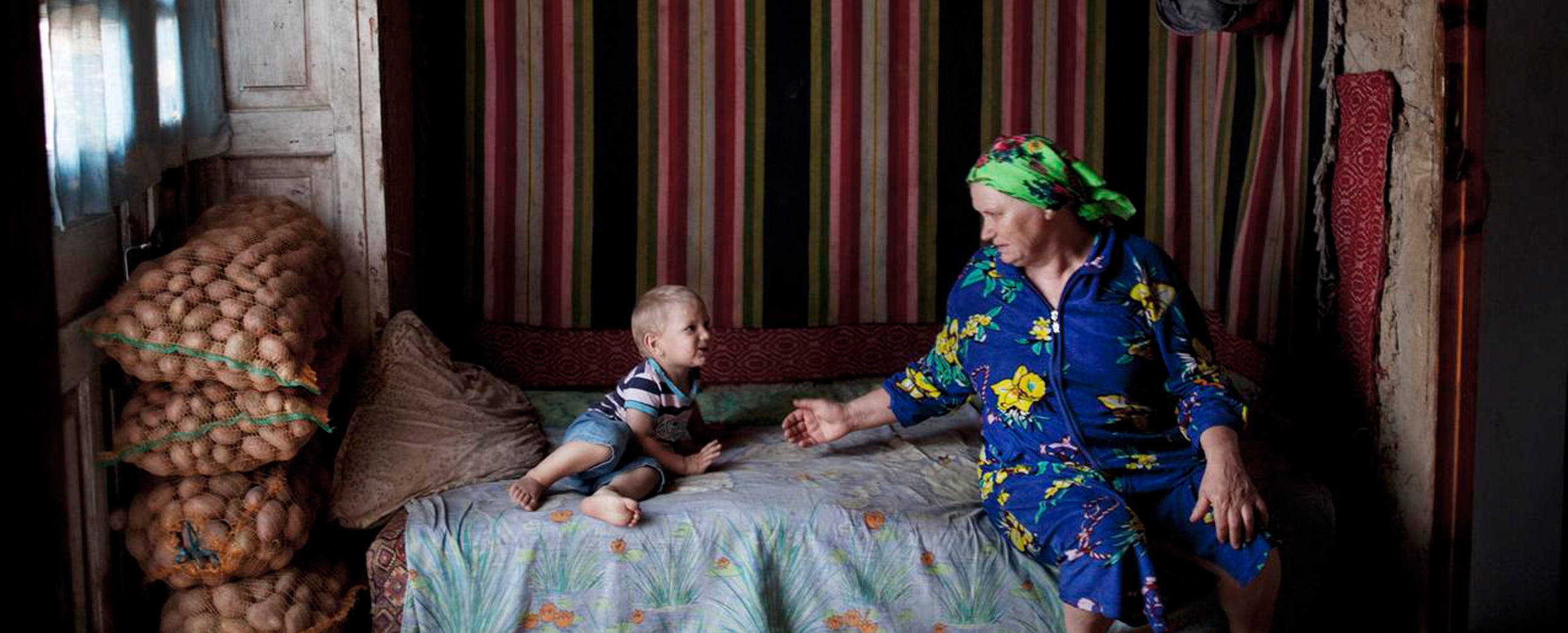The Country That Was Orphaned by Emigration
In the poorest corner of Europe, legions of Moldovan parents work abroad, leaving a quarter-million children to rely on grandparents, ancient orphanages and their own ingenuity.

Photos by Myriam Meloni
In the Republic of Moldova, one of the poorest countries in Europe, more than 250,000 children and adolescents are growing up with a father, mother, or both, living abroad, according to the Child Rights Information Center in Chisinau (CRIC). These children are social orphans whose parents are alive, but have emigrated in search of a job that will enable them to survive and build a better future for their families. The money sent home by emigrants, some $500 million per year, is now the driving force of internal consumption in Moldova, a tiny country wedged between equally impoverished Romania and Ukraine. But the other side of the coin is minted with deep rifts that have emerged in the country's social fabric. Due to the direct and indirect consequences of mass migration, which, according to the International Organization for Migration (IOM), now involves a full one-quarter of Moldova's working-age population, thousands of children too young to get by on their o…
Keep reading with a 7-day free trial
Subscribe to Narratively to keep reading this post and get 7 days of free access to the full post archives.



